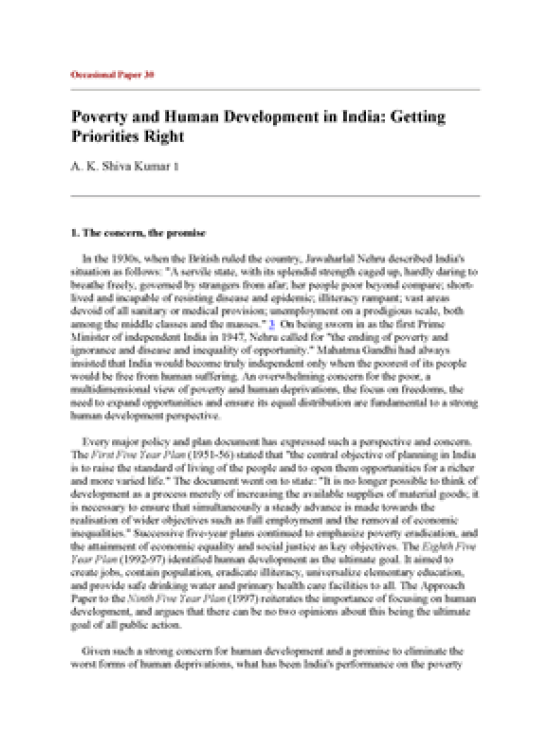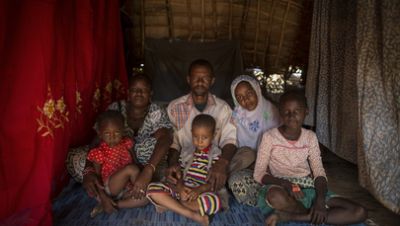Poverty and Human Development in India
Getting Priorities Right

Download Report by Language
Document
akshivakumar.pdf
(75.67 KB)
Citation
Shiva Kumar, A. K.. 1996. Poverty and Human Development in India: Getting Priorities Right. New York.
Poverty and Human Development in India
Getting Priorities Right
Posted on: January 01, 1996
In the 1930s, when the British ruled the country, Jawaharlal Nehru described India's situation as follows: "A servile state, with its splendid strength caged up, hardly daring to breathe freely, governed by strangers from afar; her people poor beyond compare; shortlived and incapable of resisting disease and epidemic; illiteracy rampant; vast areas devoid of all sanitary or medical provision; unemployment on a prodigious scale, both among the middle classes and the masses." 3 On being sworn in as the first Prime Minister of independent India in 1947, Nehru called for "the ending of poverty and ignorance and disease and inequality of opportunity." Mahatma Gandhi had always insisted that India would become truly independent only when the poorest of its people would be free from human suffering. An overwhelming concern for the poor, a multidimensional view of poverty and human deprivations, the focus on freedoms, the need to expand opportunities and ensure its equal distribution are fundamental to a strong human development perspective.

